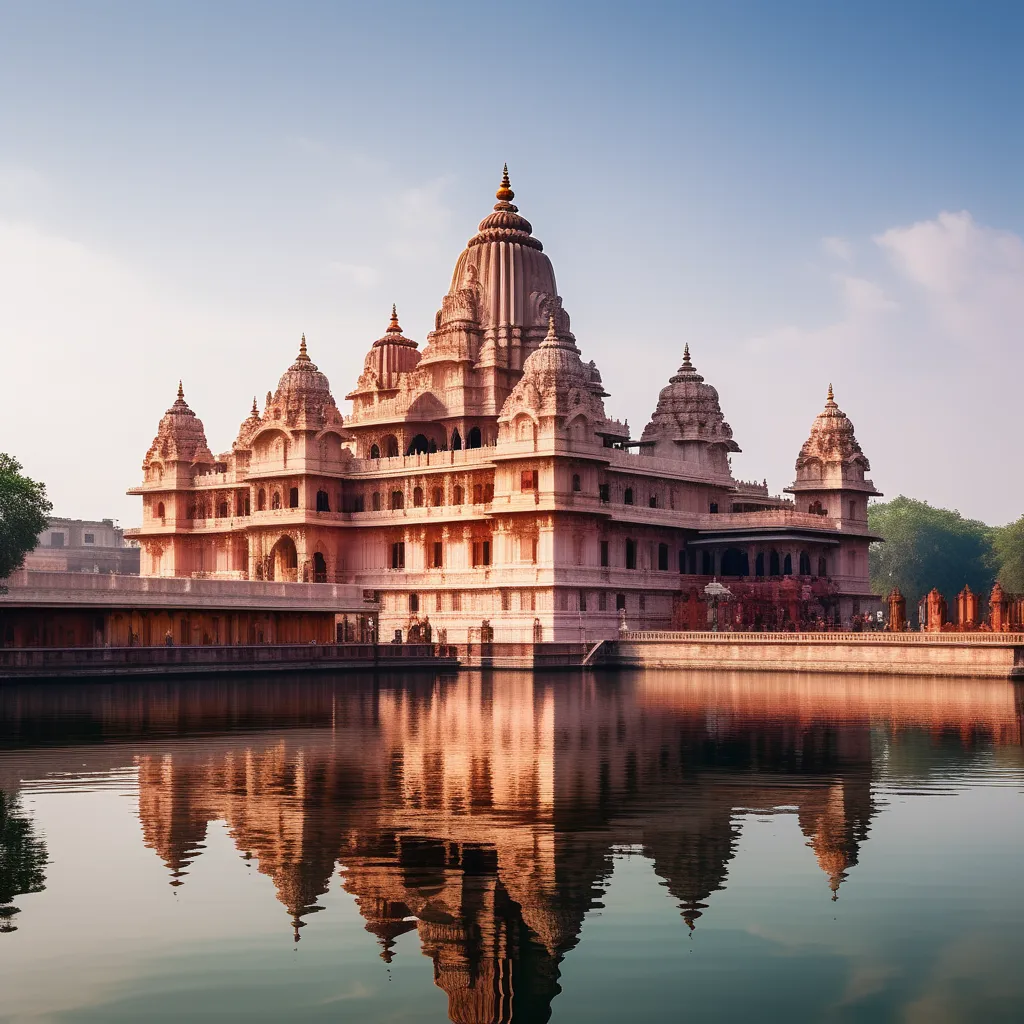Controversial Inauguration of Ayodhya Temple
On January 22, Indian Prime Minister Narendra Modi is set to inaugurate a three-story monument made of marble, sandstone, and teak. The structure boasts 44 gates and 392 intricately-carved pillars, situated on a vast 70-acre plot. However, the controversial inauguration, positioned atop the ruins of a 16th-century mosque, signifies more than just an architectural milestone. It marks the fulfillment of a three-decade promise by Modi, his ruling Bharatiya Janata Party, and other Hindu nationalist groups. This event stands as a significant political testament, emphasizing Hindu supremacy over Indian Muslims.

The town of Ayodhya in northern india was historically home to the Babri Masjid, a mosque built in 1527. Erected by a general associated with the Mughal Emperor Babur, the mosque served as a rare surviving example of early Mughal Empire architecture. For over 300 years, Muslims, India's largest religious minority, worshiped peacefully in the mosque.
Trouble began in the 1850s during British colonial rule, with the Babri Masjid becoming a focal point for Hindu nationalist attempts to rectify perceived historical wrongs. Hindus claimed the mosque's site as the birthplace of Lord Ram, a major god and mythological hero. Despite lacking historical validation, these claims gained momentum in the 1980s. Hindu nationalist groups advocated for the mosque's demolition to make way for a new Hindu temple, leading to the violent destruction of the Babri Masjid in 1992.
The Bharatiya Janata Party capitalized on this issue, leveraging Hindu nationalism to secure political power. In 2019, India's Supreme Court ruled that a Hindu temple could be built on the mosque's remains, despite acknowledging the destruction as an "egregious violation of the rule of law." Modi laid the foundation stone in August 2020, and the upcoming inauguration symbolizes the fulfillment of a Hindu supremacist agenda.
While some Hindu leaders and opposition figures view the event as politically motivated and premature, Modi is determined to proceed, aiming to harness majoritarian sentiment for the 2024 general election. The Ayodhya temple's inauguration reflects a worrying trend toward Hindu supremacist ideology, jeopardizing the pluralistic and tolerant values of many Hindus. In Modi's India, Muslims face human rights violations, and the rise of persecution has downgraded the country's democratic status.
The inauguration of the Ayodhya temple may usher in a new era of Hindu supremacist campaigns against mosques in various cities, intensifying violence against India's Muslim minority. This further solidifies the perception that India belongs exclusively to Hindus, undermining the country's diversity and inclusivity.

No comments:
Post a Comment